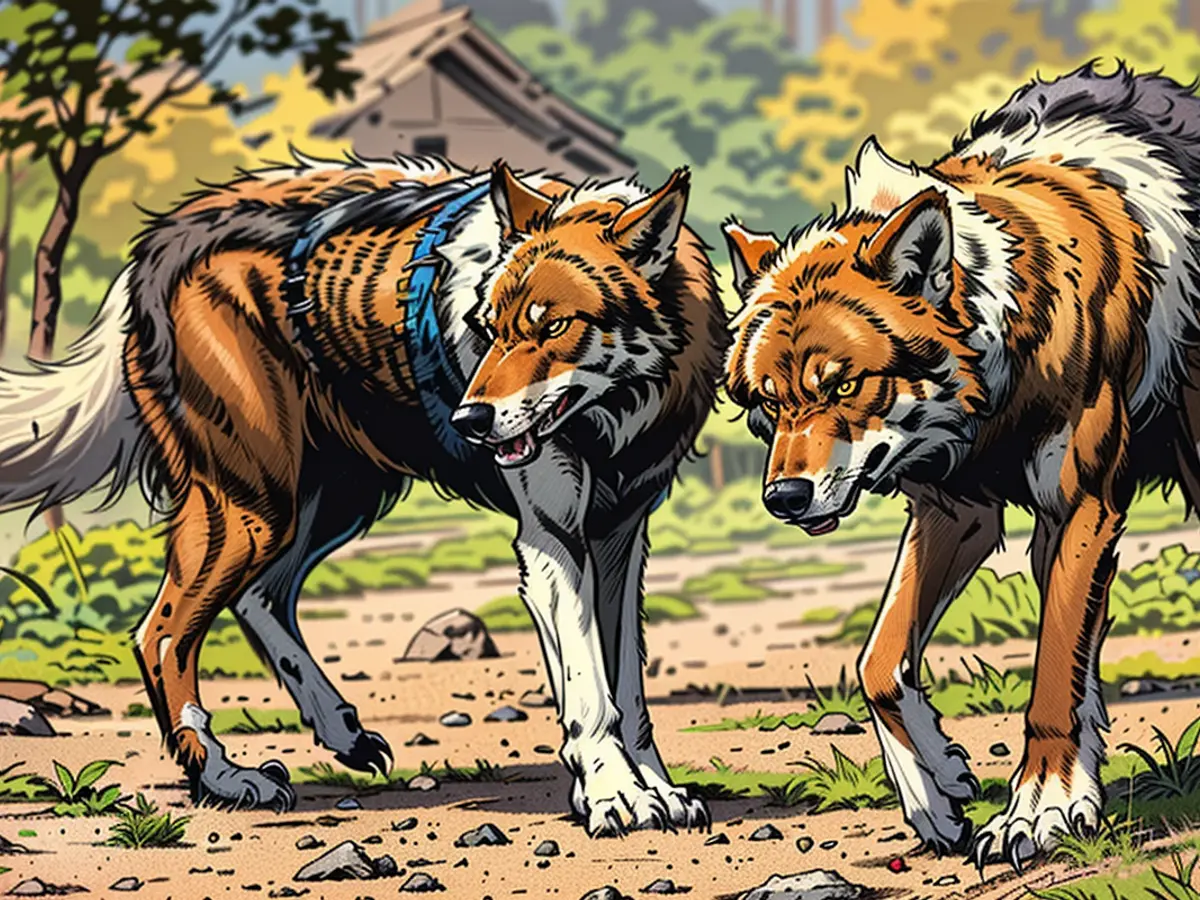Expert advocates for eliminating challenging wolf groups through firearms.
Due to wolf attacks on livestock, there's a debate about how to address the issue. Expert Eckhard Fuhr suggests dealing with problematic animals or entire wolf packs by shooting them. He opposes a general hunting quota, arguing it wouldn't improve livestock protection. Fuhr made these remarks in Berlin.
"It's crucial to swiftly eliminate any wolves that ignore reasonable herd protection measures," Fuhr stated. "This isn't about killing a few wolves, but rather a protective hunting method that complements necessary herd protection to remain effective."
In areas where wolves seem to have turned into sheep-eaters, early intervention through shooting might be necessary. "It might be necessary to eliminate several wolves and even temporarily eradicate the wolf population in some regions," Fuhr said. "It won't be permanent. New wolves will come."
Unresolved hunting issues
Following a vote by EU states, including Germany, in September, the wolf's protection status was reduced from strictly protected to protected. This opens the door for managing the wolf population due to its impact on livestock. There are still many practical concerns to address.
Fuhr, who authored the 2014 book "Return of the Wolves," stated that the belief that improved herd protection would solve the issue hasn't been proved true. Instead, herd protection's effectiveness appears to decline over time.
He cited eastern Brandenburg as an example, where large areas have been fenced off due to swine fever, yet wolves have gotten past the fences. "Only a combination of fences and guard dogs provides some security, a method of herd protection that only large, professional operations can maintain," Fuhr said.
Disappointments among livestock owners
Brandenburg, Lower Saxony, and Saxony have high wolf populations, with Brandenburg hosting around 60 confirmed wolf territories. Fuhr, who heads the Working Group on Wolves in the Ecological Hunting Association Brandenburg-Berlin (ÖJV), estimates that there are currently around 500 to 600 wolves in the state.
Individual wolf "removals" have often been halted by administrative courts. Livestock owners and parts of rural populations are highly frustrated by this.
Fuhr referred to the case of a "Gloria" wolf in the Lower Rhine area that had reportedly raised "a whole dynasty of sheep-eaters" as an extremely productive mother. "The fact that she's still alive and nothing has been done about it is one of the absurdities produced by the 'strict protection' regime for the wolf," he said. However, not all wolf packs are problematic. Similar differences have been noted in Switzerland.
"Ultimately, it's more important for biodiversity to maintain livestock grazing in the landscape than to have wolves roaming around," said Fuhr. He, however, warned against illusions: "The assumption that extensive hunting and reducing the total number, as demanded by farmers and hunters' associations, would ease life for livestock farmers is incorrect."
Professional wolf hunters needed?
The Brandenburg Hunting Association recently advocated for a fixed wolf hunting season and welcomed the possibility of an upper limit for the animals.
Fuhr cautioned against allowing wolves to be hunted during so-called movement hunts, which aim to control deer, red deer, and wild boar without causing protests. "If wolves were added to the list, the peace would be shattered," he said. In an ideal scenario, "one would have professional wolf hunters taking care of this, but one must be realistic," Fuhr added, noting that this isn't currently provided for in the hunting system.
The German Nature and Biodiversity Conservation Union (NABU) warned of further reductions in nature and species protection after the decision to lower the wolf's protection status. "This would be a severe blow to the protection of our common foundation of life," said NABU President Jörg-Andreas Krüger. He called for a return to focusing on finding viable solutions for conflicts with the wolf after the heated debates during the European election campaign.
In regions where other animals, such as goats or deer, are at risk due to wolf predation, implementing targeted hunting measures might be necessary. Fuhr mentioned that the presence of professional wolf hunters could help manage the wolf population effectively, ensuring both wildlife conservation and livestock protection.








